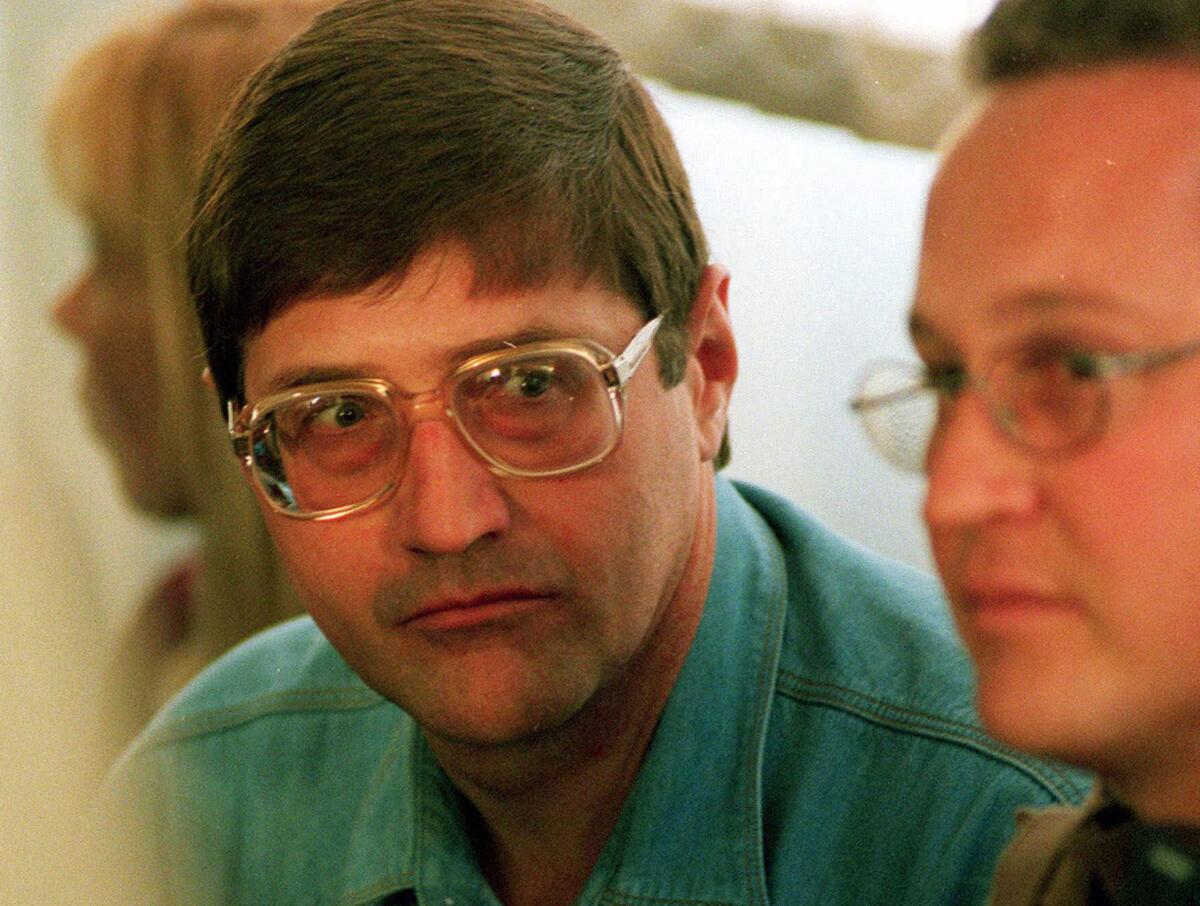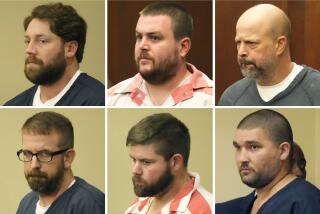South Africa grants parole to apartheid-era killer Eugene de Kock

One of the apartheid era’s most notorious killers, former police colonel Eugene de Kock, will walk free after 20 years in jail after South Africa’s government announced Friday that he had been granted parole.
De Kock, nicknamed “Prime Evil,” was the commander of the apartheid-era death squad C10, based at Vlakplaas farm, 15 miles west of Pretoria, where dozens of black activists fighting white minority rule were tortured and killed.
He was convicted in 1996 and sentenced to two life terms plus 212 years in jail. His bid for parole had come up for review several times before and been rejected.
But Justice Minister Michael Masutha said Friday that De Kock, 66, would be freed in the interests of nation-building and reconciliation, a decision bound to be controversial in a nation where the scars of apartheid have yet to heal. His release date was kept confidential.
De Kock testified before South Africa’s Truth and Reconciliation Commission in 1998, offering detailed information about the killings of African National Congress activists and where their bodies were. He said he was following orders when he killed the activists, and testified that senior politicians of the apartheid government knew about C10 and its activities.
He expressed remorse over the slayings and later continued to accuse apartheid-era politicians, including former President F.W. de Klerk, of knowledge of the killings at Vlakplaas.
In 2012, De Kock wrote to the family of ANC lawyer Bheki Mlangeni, seeking forgiveness for killing him in 1991. Mlangeni was killed by a booby-trapped Walkman cassette player, which blew up when he used it.
“Your forgiveness will mean a lot to me, but it can in no way wash away the pain I have caused. If you ever feel it will help you to deal with your pain and sorrow, feel free to visit me,” he wrote in the letter, published in South African media.
“There is no greater punishment than to have to live with the consequences of the most terrible deed with no one to forgive you. For me, even my own death can’t compare,” the letter said.
Mlangeni’s widow and mother bitterly opposed De Kock’s release at the time and told media that they doubted his remorse was genuine.
Masutha also announced Friday that he had decided against granting parole for Clive Derby-Lewis, convicted in the 1993 murder of Communist Party leader Chris Hani.
The former member of Parliament was denied parole because he didn’t show genuine remorse, according to Masutha. The medical parole board had recommended Derby-Lewis’ release because he is suffering from lung cancer.
Follow @robyndixon_LAT on Twitter for news out of Africa
More to Read
Start your day right
Sign up for Essential California for news, features and recommendations from the L.A. Times and beyond in your inbox six days a week.
You may occasionally receive promotional content from the Los Angeles Times.



